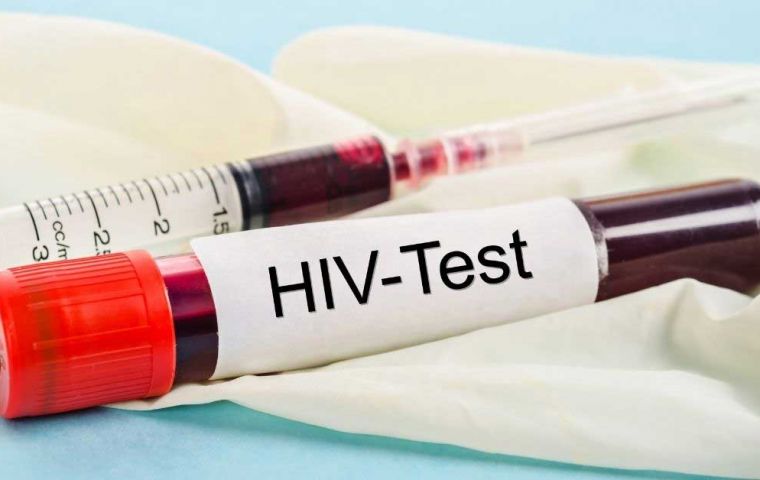MercoPress. South Atlantic News Agency
Brazilian authorities to encourage use of DIY HIV tests
 A positive outcome is not a conclusive diagnosis and further testing is required, it was explained
A positive outcome is not a conclusive diagnosis and further testing is required, it was explained Brazilian agencies encouraged manufacturers to pack their do-it-yourself HIV self-test kits more discreetly to encourage people to use them at home and avoid crowding healthcare facilities, Agencia Brasil reported.
In the coming months, public health services nationwide and civil society organizations teaming up with the Health Ministry will receive the HIV self-test in a new, smaller, and more discreet package to broaden the diagnosis of the infection to guarantee a more timely treatment and consequently avoid transmission.
“This change is not limited to a simple aesthetic adjustment, we believe that the smaller packaging will make it easier to transport the self-test, making it more discreet and accessible,” HIV and AIDS Surveillance Coordinator Artur Kalichman said.
The HIV self-test is distributed free of charge nationwide and the facilities where they can be obtained are to be found on the internet. The test is easy to use and can be carried out by the user at the time and place of their choice.
The new packaging also has a red stripe indicating that it is not for sale and the supplier's toll-free support number -which operates 24 hours a day, seven days a week- is also readable.
The test uses a sample of oral fluid and results are available in about 20 minutes. Each package contains a tube with a diluent solution, a swab for collecting the sample, a result card, a test strip that will indicate the result, a user guide, and a card with instructions, as well as a bag for disposal. Before testing, patients must not drink, eat, smoke, or perform oral hygiene for 30 minutes. The full instructions are also available in a video on the internet.
The self-test is recommended by the Health Ministry for people exposed to the risk of infection through unprotected sex, including condom breakage; sexual violence; and accidents at work involving sharp objects.
However, a positive result is not considered a conclusive diagnosis. Complementary tests are still needed to confirm the infection and start post-exposure prophylaxis (PrEP).
By 2023, more than 182,000 self-tests had been distributed in the country. Of this total, 37% were directed for use in Prep in the health system itself and 27% were for individual use.
“Simplifying the testing process and making it more accessible and less intimidating are ways of breaking down barriers and making the response to HIV more effective and inclusive,” underlined the director of the Department of HIV, AIDS, Tuberculosis, Viral Hepatitis, and Sexually Transmitted Infections, Draurio Barreira.




Top Comments
Disclaimer & comment rulesCommenting for this story is now closed.
If you have a Facebook account, become a fan and comment on our Facebook Page!